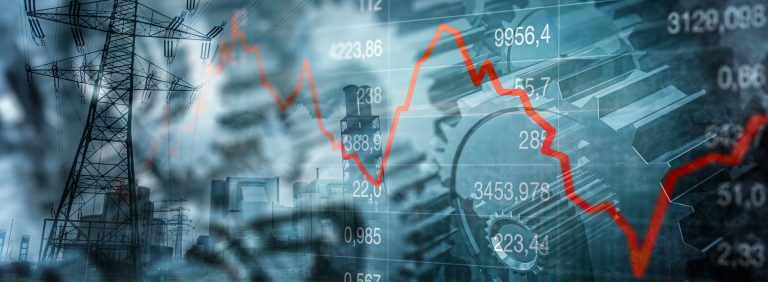
2021 was a record year for M&A activity. Investment banks and private equity investors were still optimistic about 2022 at the beginning of the year, even though they did not expect to exceed the record values of the previous year. A good prerequisite was above all the large amount of uninvested capital in the private equity industry (so-called dry powder). In view of the current geopolitical risks, however, this capital alone will only be able to influence the M&A market to a limited extent.
This article therefore first focuses on the possible effects of the Ukraine war on the transaction market. It then outlines other trends that may influence the market environment this year.
Ukraine war
The obvious consequence of the Ukraine war is the extensive sanctions imposed by the EU, the US and other countries (including Australia, Norway, Canada, Turkey, UK, Japan, South Korea, Taiwan, Switzerland) in the first quarter of 2022. These are aimed at isolating Russia and severely restricting business activities with and in Russia. In addition, companies, consultancies and law firms are increasingly putting their activities in Russia to the test, pausing them or withdrawing from Russia altogether.
In addition, there are price jumps on the commodity markets, increased inflationary pressure and increasing volatility on the global financial markets. Realistic company valuations are extremely difficult in such a market environment, IPOs are postponed and private equity investors also tend to postpone transactions.
Transactions in the current market environment, especially due to the current sanctions, require close due diligence. This involves examining the target company’s business relationships and supply chains for possible sanctions violations. The due diligence is thus becoming more complex and time-consuming depending on the business area and the size of the target company. Companies in the energy and commodities sector, insurance companies and companies with complex supply chains are particularly affected. From a legal perspective, this risk can partly be countered with extended guarantees or price adjustment clauses. It can be assumed that the importance of Material Adverse Change (MAC) clauses, which allow the buyer to refuse to execute the purchase contract if certain events occur, will also increase.
Other risks for the transaction market
The current development of interest rate policy is causing additional uncertainty among investors. The persistently high inflation rates increase the pressure on central banks to act. The US Federal Reserve raised the key interest rate last month by 0.25 percentage points to 0.5 per cent and announced further interest rate increases to up to 1.9 per cent by the end of the year. The expected end of the long-standing low interest rate policy lowers the available money supply and increases (re)financing costs.
Even before the recent escalation in Ukraine, protectionist tendencies were increasingly apparent, not only in Germany. Non-European investors therefore face stricter investment controls when acquiring stakes in German companies. So-called “key technologies” in particular are increasingly being shielded from foreign investors. A prominent example of this is the attempted takeover of the German company Siltronic by Globalwafers from Taiwan, which ultimately failed due to the long duration of the approval process by the Federal Ministry of Economics and Climate Protection (BMWK). Apart from this, however, the BMWK has only completely prohibited transactions in rare exceptional cases. Foreign trade law thus slows down M&A processes, but in most cases, it is not an insurmountable obstacle. Accordingly, the negative impact on the transaction market is rather moderate – subject to further tightening.
Opportunities and trends
A driver of M&A activity is and remains the continuously high amount of money managed by private equity investors. In particular, investors looking for favourable entry opportunities may be able to take advantage of the current market environment. Due to the experiences in the Corona pandemic, virtual M&A processes have also been established, which can simplify and accelerate cross-border but also national transactions. For non-European investors, Germany remains an attractive market as a “Gateway to Europe”.
In 2022, the major social debates on sustainability and social responsibility are also reflected in M&A transactions. Investors (and their investors) are increasingly demanding that companies comply with ESG (environmental social governance) standards. In due diligence, ESG criteria are therefore increasingly coming into an acquirer’s field of vision. A poor ESG rating can lead to a reduction in the purchase price or even the termination of a transaction. Conversely, an exemplary ESG rating can increase the market value of the company. In addition, a company’s own ESG rating can be specifically improved through strategic acquisitions.
The Corona pandemic also continues to be a transformation catalyst towards more digitalisation. Technology companies in particular, which offer corresponding solutions such as software, cloud computing or e-commerce platforms, benefit from this. However, digitalisation and technological innovations also hold high growth potential in the health care market, a market that is steadily gaining in attractiveness for investors due to the increasing ageing of populations in industrialised nations. Last but not least, the defence industry is experiencing a comeback as an interesting investment target, also due to the security policy turnaround in Germany.
Overall, it remains to be seen how the M&A year 2022 will develop, with the geopolitical situation and development being of decisive importance. The numerous positive impulses for the transaction market also allow for a cautiously optimistic outlook, always provided that the war against Ukraine comes to an end in the near future.
